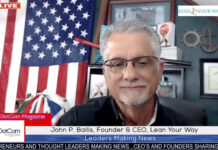A penetration tester, often referred to as a pentester, is a skilled professional who specializes in evaluating the security of computer systems, networks, and applications. Their primary role is to identify vulnerabilities and weaknesses in an organization’s information security infrastructure by simulating real-world cyber-attacks. By doing so, pentesters help organizations identify and address potential security risks before malicious hackers can exploit them.
Pentesters are highly trained individuals who possess a deep understanding of various computer systems, networks, operating systems, and programming languages. They are proficient in both offensive and defensive security techniques, using their knowledge to assess the security posture of an organization’s assets. These assets can include web applications, databases, network devices, wireless networks, and even physical security controls.
The work of a pentester involves conducting a wide range of security assessments and tests. They use a combination of manual and automated techniques to identify vulnerabilities, design and execute attack scenarios, and validate the effectiveness of existing security controls. By employing methodologies such as the Open Web Application Security Project (OWASP) Testing Guide and the Penetration Testing Execution Standard (PTES), pentesters follow a structured approach to ensure comprehensive coverage of security testing activities.
One of the key aspects of a pentester’s job is maintaining a strong ethical stance. While their activities may resemble those of malicious hackers, their intentions are entirely different. Pentesters operate under strict legal and ethical guidelines, ensuring that their actions are authorized and conducted with the full knowledge and consent of the organization being tested. They abide by rules of engagement defined in the scope of work, respecting boundaries and minimizing disruption to critical systems and operations.
Pentesters often start their engagements by gathering information about the target organization, commonly known as reconnaissance. This phase involves understanding the organization’s infrastructure, technologies, and potential entry points. With this information, pentesters proceed to identify vulnerabilities that could be exploited by attackers. This process may involve manual inspection, network scanning, vulnerability scanning, and other techniques aimed at uncovering weaknesses in the system.
Once vulnerabilities are identified, pentesters exploit them using various techniques. This may involve exploiting weak passwords, misconfigured systems, or insecure coding practices. The goal is to simulate a real-world attack and gain access to sensitive data or critical systems. By successfully exploiting vulnerabilities, pentesters demonstrate the impact of these weaknesses and provide recommendations for remediation.
In addition to exploiting vulnerabilities, pentesters also assess the effectiveness of existing security controls. This includes evaluating firewall configurations, intrusion detection systems, access controls, encryption protocols, and other defensive mechanisms in place. By thoroughly testing these controls, pentesters can identify any weaknesses or misconfigurations that could be leveraged by attackers.
Following the assessment phase, pentesters compile a detailed report that outlines their findings, along with recommended remediation steps. This report is a crucial deliverable, providing organizations with actionable insights to enhance their security posture. The report typically includes an executive summary, technical details of vulnerabilities discovered, and prioritized recommendations for addressing them. Pentesters may also provide guidance on security best practices, employee training, and incident response procedures.
Pentesters must possess a wide range of technical skills and knowledge to be effective in their role. They must stay up to date with the latest security threats, attack techniques, and defensive strategies. They often participate in ongoing professional development activities, attend security conferences, and engage in capture-the-flag (CTF) competitions to sharpen their skills.
Furthermore, pentesters need to possess excellent problem-solving and analytical skills. They must think like attackers, anticipating their next move and identifying potential attack vectors. By having a deep understanding of the attacker’s mindset, pentesters can adopt an offensive approach that is crucial in detecting vulnerabilities that might otherwise go unnoticed.
Pentesters play a vital role in securing organizations against potential cyber threats. Their expertise, combined with their ethical approach to security testing, allows them to uncover vulnerabilities and provide valuable recommendations for improving an organization’s security posture. By conducting thorough assessments and staying current with the evolving threat landscape, pentesters help organizations proactively address security risks and protect their valuable assets.
Moreover, pentesters often work in teams, collaborating with other cybersecurity professionals, such as security analysts, network administrators, and incident response teams. This teamwork allows them to leverage diverse perspectives and expertise, leading to more comprehensive assessments and better-rounded solutions. Effective communication skills are essential for pentesters, as they must convey complex technical information in a clear and concise manner to both technical and non-technical stakeholders.
The field of penetration testing is not only limited to traditional IT systems but also extends to Internet of Things (IoT) devices, industrial control systems, and cloud-based services. As technology continues to evolve, so do the potential attack surfaces, and pentesters must adapt their skills to test the security of emerging technologies.
While pentesters strive to find and eliminate vulnerabilities, they also face challenges that require them to be adaptable and innovative. Organizations may employ various security measures, such as firewalls, intrusion detection systems, and encryption protocols, which could pose obstacles to traditional attack methodologies. Pentesters must continually develop new techniques and approaches to circumvent these defenses and uncover potential weaknesses.
Ethics and integrity are of utmost importance in the world of penetration testing. As professionals with significant power to disrupt an organization’s operations, pentesters must handle sensitive information responsibly and maintain strict confidentiality. The trust that organizations place in them demands a high level of professionalism, ensuring that their findings are used solely for the purpose of improving security.
To be effective and efficient, pentesters often employ a wide array of tools and software during their assessments. These tools range from open-source utilities to proprietary software designed specifically for penetration testing. While automation plays a crucial role in streamlining certain tasks, the human element remains indispensable. Experienced pentesters know when to rely on automated tools and when to apply manual techniques, allowing them to identify intricate vulnerabilities that automated scans might miss.
In recent years, pentesting has seen a growing demand, as organizations recognize the importance of proactive cybersecurity measures. External forces, such as industry regulations and compliance standards, have also driven the need for regular security assessments. As a result, many pentesters work as part of specialized cybersecurity firms or are employed within larger organizations with dedicated security teams. Additionally, some pentesters choose to work independently as consultants, offering their expertise to multiple clients across different industries.
Pentesters may also find themselves involved in red teaming exercises, which go beyond traditional vulnerability assessments. Red teaming involves simulating realistic attack scenarios to evaluate an organization’s ability to detect and respond to advanced threats. It provides a more comprehensive evaluation of an organization’s overall security posture and often involves social engineering, physical security testing, and more sophisticated attack simulations.
In conclusion, the role of a pentester is crucial in maintaining robust cybersecurity defenses for organizations in the digital age. By utilizing their technical expertise, creative problem-solving skills, and adherence to ethical principles, pentesters help organizations identify and mitigate potential security risks before malicious actors can exploit them. Their work not only bolsters an organization’s security posture but also contributes to the broader cybersecurity community by constantly pushing the boundaries of knowledge and improving best practices in the fight against cyber threats. As technology continues to evolve, the demand for skilled pentesters will only increase, ensuring a safer and more secure digital landscape for individuals and businesses alike.

















